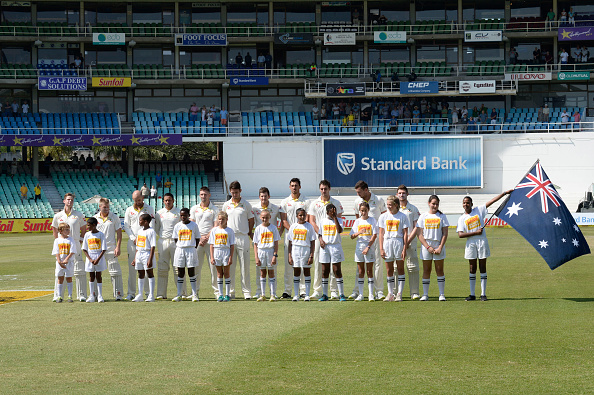If the opening day of a four-Test series between two of the sport’s giants can’t attract a decent crowd, then Test cricket is in deep trouble. Or maybe, it’s just Durban.
Durban has history in this regard. Locals have a proven ‘record’ of being apathetic when it comes to watching Test cricket in the last 15 years. Has the excellence of television production played a major factor in the continuing decline of paying customers? If not, what’s the reason?
The Durban apologists will say that the poor turnout on day one was due to the fact the Test started on a working day, a Thursday. They will point to last month’s Test at the Wanderers in Johannesburg, where 5,541 spectators clicked through the turnstiles for the first day between South Africa and India. It was a Wednesday.
Wait for Friday and the weekend, those in Durban will say. They are right, but when it comes to statistics, any graph that starts at a low base and increases is impressive. It’s a five-day Test for a reason. Day one is like the smell of a new car.
A poor crowd is nothing new. In 2002, the Boxing Day Test between South Africa and Pakistan drew 14,503 spectators over the four days that the match lasted – an average of 3,625 per day. The opening day attracted 4,500 people. Right in the middle of the December holidays. A ‘work day’ had nothing to do with it.
Nor did a ‘work day’ have anything to do with a measly combined attendance of 37,344 spread over five days when the great Jacques Kallis played his final Test, also starting on Boxing Day, against India, in 2013. From an opening day 13,581 spectators, it dropped to 4,700 for days two and three and then 7,000 for days four and five. What a pathetic send-off for the greatest cricketer South Africa has ever produced.
So, Kingsmead’s ‘no show’ for Test matches isn’t something that’s happened overnight. Ticket prices are affordable – or are they not? The weather on the first day was set fair and the players on show included some of the very best in the game: Steve Smith, David Warner, AB de Villiers, Vernon Philander, Kagiso Rabada, Quinton de Kock, Mitchell Starc, Faf du Plessis and more. Oh yes, and playing in his 84th Test and final appearance at Kingsmead, was Morne Morkel.
But, if Durban couldn’t give Kallis a proper farewell, what chance would Morkel have?
I’m sure that had the game been an ODI between South Africa and Australia with a 10:00am start there would have seen 20,000 people queuing to get into the stadium, ‘work day’ or not.
Which brings me to the 10:00am start in Durban. When the umpires called bad light at 4:26pm, 76 overs had been bowled, 14 short of what’s required for a full day’s Test cricket. Why do we always have this discussion about Durban? South Africa is a big enough country that there should be an hour time zone from west to east coast. Why always start at 10:00am in Durban, knowing time will be lost? Why not 9:00am, 9:30am? Even the Aussies watching on TV back home would appreciate that extra hour.
In terms of the cricket itself, South Africa should be happy that they kept Australia to 225-5 by the close of play and not allowing any of the Australian batsmen to get away from them, especially after Steve Smith won the toss and chose to bat first.
Faf du Plessis allowed himself to get to buy in to Morne Morkel’s enthusiasm, and the sentiment of the big man’s final Test at Kingsmead by wasting a review as early as the third ball of the innings. ‘Too high’, Du Plessis seemed to be gesturing to Morkel – and yet, three balls into the series he agreed to the review. It was sailing over the stumps.
Morkel, in 2012, trapped England captain Andrew Strauss in front with the fourth ball of the series, but that just seemed more ‘out’ than this to the right-handed Cameron Bancroft. Taking the new ball and getting an lbw decision in the first over is an exception for Morkel. Du Plessis shouldn’t have gone for the review.
With Keshav Maharaj’s first ball another review was called for – and every armchair fan in the world thought that umpire Kumar Dharmasena had got it wrong. Yet he hadn’t, and David Warner lived to fight another day. Both SA reviews were gone in 61 balls.
When Kagiso Rabada appealed for an lbw to Shaun Marsh with the score at 145-3 and Marsh on 19, umpire Dharmasena said not out. Replays showed the ball smashing leg stump.
Marsh went on to make 40, and in the context of what looks like a low-scoring match on a wicket that a batsman will never feel ‘in’ on, those 21 runs could be significant.
Photo: Lee Warren/Gallo Images/Getty Images







